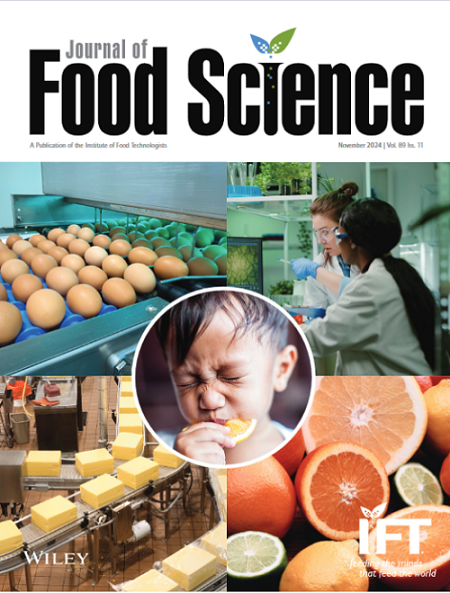Inulin-Driven Preservation in Frozen Chicken Nuggets: Harnessing Multi-Method Freezing and Storage
Abstract
ABSTRACT
Frozen ready-to-cook foods, such as chicken nuggets, must maintain their quality throughout storage, from production to retail and final consumption. This study investigates the synergistic effects of inulin incorporation and different freezing methods on the physicochemical properties of chicken nuggets during six months of frozen storage. The nuggets were formulated with and without high-purity inulin extracted from Jerusalem artichoke and subjected to three distinct freezing methods: static freezing (SF), air-blast freezing (ABF), and individual quick freezing (IQF). Key quality attributes, including thaw loss, ion leakage, pH, texture, cooking loss, color, and lipid oxidation thiobarbituric acid reactive substances (TBARS) were assessed throughout the storage period. Inulin addition significantly reduced the thaw loss and cooking loss, enhancing the water-holding capacity. While lipid oxidation increased during storage, TBARS formation was diminished with inulin. Among the freezing methods, IQF helped stabilize the pH fluctuations. The inulin-added sample frozen using IQF had stable chewiness values during frozen storage. The use of inulin, along with IQF, effectively minimized ion leakage and cooking loss for the storage period. The results suggest that inulin is a promising natural cryoprotectant for enhancing the stability of frozen chicken nuggets. These findings highlight the potential of combining inulin with advanced freezing techniques to develop higher-quality, stable frozen meat products.
Practical Application
Inulin enhanced the functional quality of chicken nuggets by reducing cooking loss and protecting structural integrity during frozen storage. Additionally, its use as a plant-based ingredient supports clean-label formulation while offering cryoprotective benefits, making it a valuable multifunctional additive in frozen emulsion-type meat products.

 求助内容:
求助内容: 应助结果提醒方式:
应助结果提醒方式:


